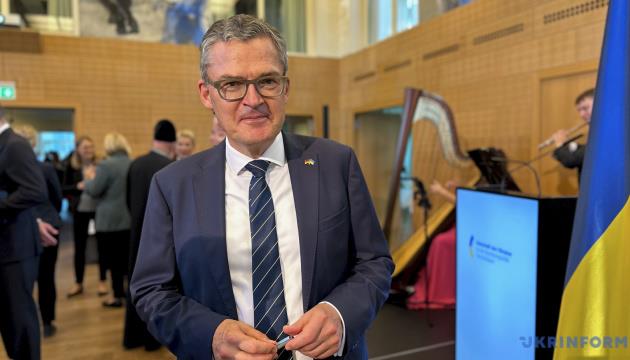Europe Must Start Planning Troop Deployment In Ukraine After Ceasefire, Says German Politician
“In public discussions about troops, which would actually serve as security guarantees, it's important to clearly distinguish whether we are talking about forces to enforce a ceasefire or forces to ensure a lasting peace. The size and tasks of such troops would differ. Both scenarios are currently entirely unrealistic. Nevertheless, it is important to start concrete planning behind the scenes, without public noise about troop deployment and contributions from European countries,” the politician said.
Kiesewetter recalled that the Coalition of the Willing had already met during the previous German government to discuss specific contributions to security guarantees, the mandate format, and the necessary involvement of the United States. He noted that U.S. contributions, particularly strategic capabilities such as satellite intelligence, remain important for Europe but can no longer be taken for granted in the current situation.
In any case, Kiesewetter believes it is crucial that Europeans deploy their own troops in Ukraine as part of security guarantees.
“Europe cannot shift this responsibility to other regions of the world, because its future is at stake. For this reason, planning and scenarios need to be prepared in advance, preferably without hysterical, undifferentiated, or politicized public debates in Germany... Germany should and can participate, as the strongest economy in Europe,” the Bundestag member stated.
Read also: German MP in Kyiv: mapping Ukraine's military needs firsthanHe suggested that the German parliament could support a government decision to send Bundeswehr soldiers to Ukraine after a ceasefire, provided the plan is properly communicated.
“I consider this realistic if such a decision... is strategically prepared and communicated. It is the Chancellor's task to build a majority for strategically important decisions and convince the parliamentary majority,” said Kiesewetter, who is a member of the ruling Christian Democratic Union (CDU).
The politician also noted that it would be easier for the Chancellor to pursue this if he does not categorically reject the possibility now, avoiding the need for a“U-turn” later.
Previously, Chancellor Friedrich Merz, like his predecessor Olaf Scholz, had rejected the idea of sending German soldiers to Ukraine in any capacity. Instead, Germany has focused on financing security guarantees, including strengthening the Ukrainian Armed Forces.
Legal Disclaimer:
MENAFN provides the
information “as is” without warranty of any kind. We do not accept
any responsibility or liability for the accuracy, content, images,
videos, licenses, completeness, legality, or reliability of the information
contained in this article. If you have any complaints or copyright
issues related to this article, kindly contact the provider above.
Most popular stories
Market Research

- What Does The Europe Cryptocurrency Market Report Reveal For 2025?
- United States Kosher Food Market Long-Term Growth & Forecast Outlook 20252033
- Utila Triples Valuation In Six Months As Stablecoin Infrastructure Demand Triggers $22M Extension Round
- Meme Coin Little Pepe Raises Above $24M In Presale With Over 39,000 Holders
- FBS Analysis Highlights How Political Shifts Are Redefining The Next Altcoin Rally
- 1Inch Becomes First Swap Provider Relaunched On OKX Wallet






















Comments
No comment